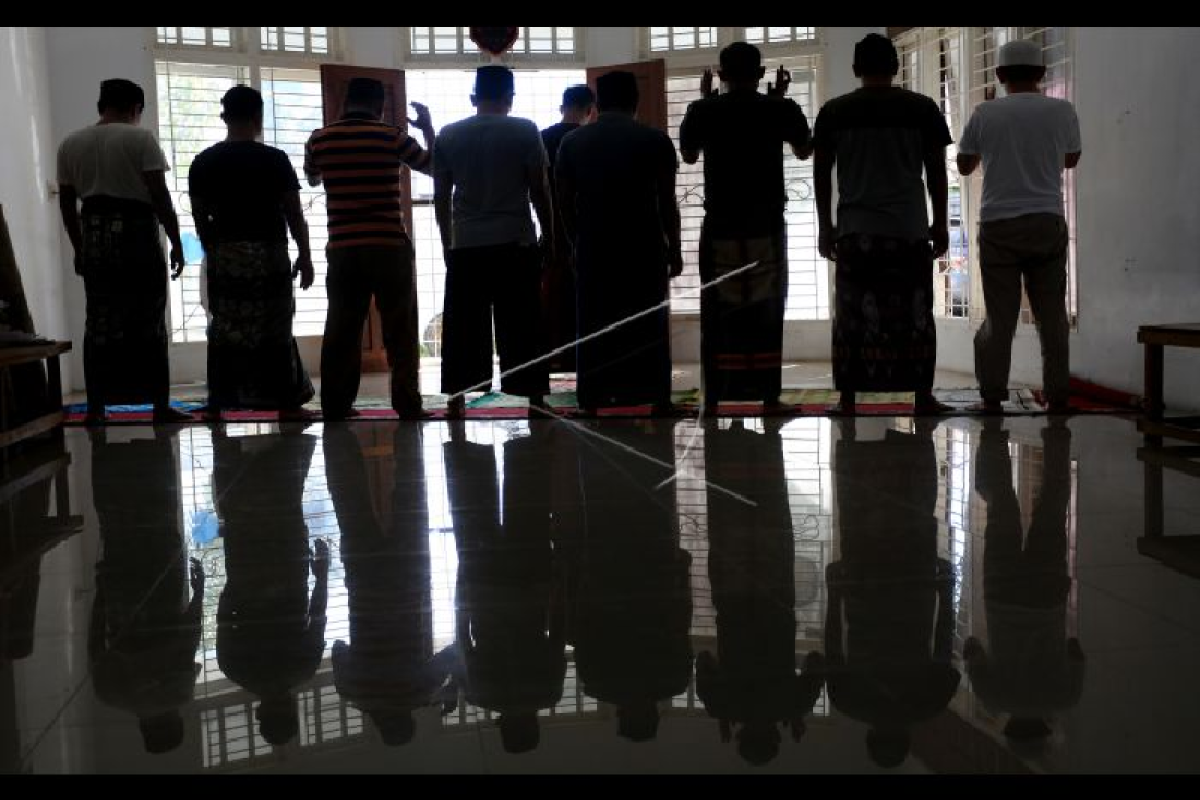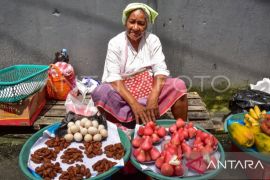The high number of correctional facility inhabitants in all corners of Indonesia is due to narcotics crimes, National Narcotics Agency (BNN) Head Petrus Reinhard Golose noted.
"If all criminal act perpetrators are gathered in one place, then their number is still below the number of narcotics crime perpetrators," he remarked while destroying evidence in the form of methamphetamine weighing 308 kilograms.
More than 70 percent of the prison inmates in various major cities and regions are incarcerated due to narcotics crimes.
Meanwhile, in small regions, some 50 percent of the correctional facilities are filled with people, who have committed narcotics crimes.
Observing the number of inmates that exceeds the facilities' capacity, the people started to highlight the importance of prioritizing rehabilitation in handling narcotics crimes by law enforcement authorities.
Prioritizing rehabilitation is a form of commitment by the government in upholding restorative justice in Indonesia. It can also serve as a solution to reduce the number of inmates due to narcotics usage.
However, in expanding rehabilitation, the government should start to consider the needs of vulnerable groups that undergo rehabilitation, in this case, women and transwomen.
Related news: Ministry supports family quality improvement efforts in Central Lombok
Rehabilitation facility
Indonesian Justice Action (AKSI) Foundation's Women, Community, and People Empowerment Coordinator Rosma Karlina affirmed that most rehabilitation centers in Indonesia had yet to accommodate the needs of women narcotics users.
Women narcotics users require a separate building from men, who also undergo rehabilitation.
The need for a separate building is not just to protect women from sexual violence that they may experience when they undergo rehabilitation but also to protect their privacy when they conduct daily activities, such as washing clothes.
Women drug users are vulnerable to sexual violence as a result of the stigma attached to them. The existence of this stigma often results in women being on the receiving end of harassment from men, she pointed out.
Moreover, rehabilitation centers should provide a day care facility for women narcotics users, who have children, especially for those who still need to be cared for by their mothers.
It is not rare for troubled women to undergo rehabilitation because they have to take care of their children, she explained.
If a rehabilitation center can provide a day care, then narcotics users, who are mothers, can focus on their rehabilitation, as they feel safe if their children are being taken care of by professional workers.
In addition to providing more facilities for women narcotics users, the government should take into account the needs of transwomen narcotics users.
Transwomen often fall under the government's radar when it comes to rehabilitation service. To this day, Indonesia does not yet have a narcotics rehabilitation center specifically for transwomen, Karlina pointed out.
Related news: Everyone urged to help realize Women, Children Friendly Village
Transwomen belong to a minority group that is highly vulnerable to face discrimination and sexual violence. There is a dilemma in placing transwomen in rehabilitation centers.
Placing transwomen in a rehabilitation center for men is not quite appropriate since it does not align with their gender.
However, placing them in a rehabilitation center for women is not quite right either since they are rarely welcomed in this environment.
There are still women, who do not feel comfortable if placed in the same room as transwomen.
To this end, transwomen also require their own rehabilitation center separate from both men and women.
Gender-matching counselors
Counselor sessions often result in the revelation of various traumatic incidents and wounds from the past of narcotics users.
It is not rare for these traumatic incidents to involve sensitive topics, such as sexual violence, which narcotics users may have experienced, especially women, Karlina stated.
Women narcotics users will be more open if they tell their story to women counselors. They tend to be more comfortable in telling sensitive stories to women counselors.
Thus, counselors can provide a more appropriate follow-up as compared to counseling sessions hindered by limitations.
Limitations in this case mean women narcotics users, who hesitate to speak up openly about their traumatic stories, which makes it difficult for counselors to assist in the rehabilitation process.
Moreover, the importance of counselors of the same gender aims to prevent closeness between counselors and narcotics users outside the realm of the rehabilitation process.
Related news: Women in villages lack access to education, health, and jobs: Minister
Ethically, counselors cannot have any relationship with the client, she explained.
A similar need also applies to transwomen. Women and men counselors will not be able to understand the needs of transwomen as compared to transwomen counselors.
If transwomen are referred to by the police to undergo rehabilitation, but they have to deal with women or men counselors, then several issues might arise, she noted.
One of these issue concerns the difficulties faced by transwomen to open up about their ordeal when they face counselors that fail to understand their situation and condition.
Related news: 3,498 women lead villages, creating inclusive villages: ministry
This can create boundaries during the counseling session, thereby making it difficult for counselors to help with their treatment.
Even if transwomen tell their experiences, non-transwomen counselors may struggle to understand what their patients require to help with their rehabilitation.
Hence, Karlina emphasized that it is important for the state or rehabilitation provider institutions to provide transwomen counselors.
Prioritizing rehabilitation is a restorative justice step that can be implemented in narcotics abuse cases.
To this end, the government must ensure the provision of rehabilitation centers that can accommodate the needs of various groups.
Bolstering rehabilitation facilities and services aims to support the implementation of the Narcotics Law and to fulfill the needs of narcotics users currently undergoing rehabilitation.
Related news: Ministry urges women to get involved in politics
Related news: Women's involvement can significantly boost global GDP growth: B20
Editor: Fardah Assegaf
Copyright © ANTARA 2022












